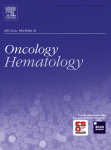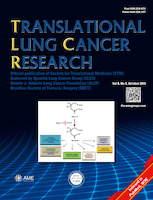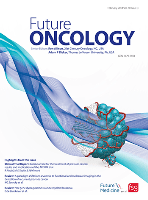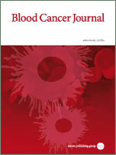
CRITICAL REVIEWS IN ONCOLOGY HEMATOLOGY
Scope & Guideline
Fostering collaboration for breakthroughs in oncology and hematology.
Introduction
Aims and Scopes
- Clinical Treatment Modalities:
The journal emphasizes reviews on various treatment options, including chemotherapy, immunotherapy, targeted therapies, and novel approaches like CAR-T cell therapy, providing insights into their efficacy and safety. - Diagnostic Innovations:
A significant focus is placed on advancements in diagnostic techniques, including liquid biopsies, genomic profiling, and the use of biomarkers to predict treatment responses and disease progression. - Patient Management Strategies:
The journal explores comprehensive patient management strategies, including supportive care, psychosocial interventions, and the integration of exercise and nutrition into cancer care. - Emerging Research Trends:
A key aim is to highlight emerging trends in oncology and hematology, such as the role of the microbiome in cancer treatment, epigenetics, and novel therapeutic agents. - Systematic Reviews and Meta-analyses:
The journal serves as a platform for systematic reviews and meta-analyses that synthesize existing research to guide clinical practice and inform future research directions.
Trending and Emerging
- Immunotherapy and Combination Treatments:
A significant trend is the rising focus on immunotherapy, particularly its combination with other treatment modalities, as researchers explore synergistic effects and improved outcomes. - Liquid Biopsy and Biomarkers:
The use of liquid biopsies and biomarkers for early detection, monitoring treatment response, and predicting outcomes is gaining attention, indicating a shift towards less invasive and more personalized approaches. - Targeted Therapies and Precision Medicine:
There is an increasing emphasis on targeted therapies tailored to specific genetic mutations and characteristics of tumors, reflecting a broader move towards precision medicine in oncology. - Health-Related Quality of Life (HRQoL) Assessments:
Research focusing on patient-reported outcomes and HRQoL is trending, highlighting the importance of considering the psychosocial aspects of cancer treatment. - Microbiome and Cancer Interactions:
Emerging studies are investigating the role of the microbiome in cancer progression and treatment efficacy, suggesting a novel area of research that intersects immunology and oncology.
Declining or Waning
- Traditional Chemotherapy:
There has been a noticeable decrease in articles focused solely on traditional chemotherapy regimens, as the field increasingly emphasizes personalized medicine and targeted therapies. - Standard Radiotherapy Techniques:
Research on standard radiotherapy techniques appears to be waning, with less emphasis on conventional approaches compared to innovative methods like stereotactic body radiotherapy and combination therapies. - Generalized Patient Outcomes:
There is a decline in articles that broadly assess patient outcomes without specificity, as the focus shifts towards more nuanced studies that consider various demographic and genetic factors. - Basic Research on Tumor Biology:
While foundational research remains important, there is a reduced presence of purely basic science articles, with more emphasis on translational research that directly informs clinical practices. - Historical Reviews:
The journal seems to be moving away from historical reviews of older treatments or theories, concentrating instead on contemporary research and future directions in cancer therapy.
Similar Journals

Journal of Hematology & Oncology
Unlocking Innovations in Blood Disorders and Cancer ResearchJournal of Hematology & Oncology, published by BMC, is a leading open-access journal dedicated to the dynamic fields of hematology and oncology, with a continuous publication record since 2008. Based in the United Kingdom, this prestigious journal provides a platform for groundbreaking research, encompassing topics that span cancer research, hematological disorders, and molecular biology. With a remarkable Q1 ranking in multiple categories including Cancer Research, Hematology, Molecular Biology, and Oncology for 2023, it stands as a significant contributor to the scientific community. The journal's rigorous peer-review process ensures the dissemination of high-quality studies that drive advancements in these critical areas of medicine, boasting an impressive Scopus rank in the top echelons of its fields. As an open-access publication, it promotes widespread accessibility and sharing of knowledge, making it an indispensable resource for researchers, clinicians, and students striving to make advancements in understanding and treating hematological and oncological diseases.

Translational Lung Cancer Research
Elevating the standards of translational oncology research.Translational Lung Cancer Research is a leading journal dedicated to advancing the field of oncology, particularly focusing on groundbreaking discoveries in lung cancer treatment and management. Published by AME Publishing Company, this journal boasts an impressive Q1 classification in the 2023 Oncology category, reflecting its significant contribution to the scientific community, with an outstanding Scopus rank of #92 out of 404 in Medicine _ Oncology, placing it in the 77th percentile. With its commitment to open access, the journal fosters international collaboration and accessibility, making cutting-edge research available to a wide audience. The scope of Translational Lung Cancer Research encompasses clinical trials, experimental studies, and translational research that bridge the gap between laboratory findings and clinical applications. Researchers, professionals, and students seeking to keep abreast of the latest developments in lung cancer research will find invaluable insights within its pages. For further information, please contact at FLAT-RM C 16F, KINGS WING PLAZA 1, NO 3 KWAN ST, SHATIN, HONG KONG.

Experimental Hematology & Oncology
Advancing the Frontiers of Blood and Cancer ResearchExperimental Hematology & Oncology is a premier journal published by BMC, dedicated to advancing knowledge in the fields of hematology, oncology, and cancer research. Since its inception in 2012, this Open Access journal has emerged as a vital resource for researchers and healthcare professionals, fostering the dissemination of high-quality research that enhances our understanding of blood disorders and malignancies. With impressive rankings in Quarters 1 of key categories including Cancer Research, Hematology, and Oncology, it holds significant prestige, evidenced by its Scopus rankings: #42/404 in Medicine (Oncology) and #17/137 in Medicine (Hematology). The journal aims to publish cutting-edge studies, reviews, and perspectives that contribute to the evolution of therapeutic strategies and innovative treatment modalities. Researchers and practitioners alike will find this journal indispensable for staying at the forefront of breakthroughs in hematological and oncological research.

Future Oncology
Unveiling groundbreaking findings in oncology.Future Oncology is a premier peer-reviewed journal published by FUTURE MEDICINE LTD, dedicated to advancing research and innovation within the field of oncology. Established in 2005 and set to continue through 2024, this journal serves as an essential resource for researchers, healthcare professionals, and students engaged in cancer studies. With its emphasis on groundbreaking findings and multidisciplinary approaches, Future Oncology holds an esteemed reputation, reflected in its 2023 category quartiles ranking it in Q2 for Cancer Research and Q1 for Medicine (miscellaneous). The journal is indexed in Scopus, showcasing its rigorous content, with rankings in the 63rd percentile for Oncology and the 46th percentile for Cancer Research. Although it does not operate on an open-access model, its commitment to disseminating cutting-edge findings makes it an invaluable asset for those seeking to stay at the forefront of oncology research.Future Oncology strives to bridge the gap between laboratory and clinical research, fostering collaboration and appreciation for the complexities of cancer treatment.

ACTA ONCOLOGICA
Unraveling complexities in cancer care and imaging.ACTA ONCOLOGICA is a prestigious multidisciplinary journal published by Medical Journal Sweden AB, dedicated to advancing cancer research and clinical practice. As a key resource in the field of oncology, the journal aims to publish high-quality articles that cover significant developments in cancer biology, treatment modalities, and innovative imaging techniques. With an ISSN of 0284-186X and an E-ISSN of 1651-226X, ACTA ONCOLOGICA operates in the United Kingdom and is recognized for its substantial impact, currently holding a Q2 ranking in the categories of Hematology, Medicine (miscellaneous), Oncology, and Radiology, Nuclear Medicine and Imaging in 2023. The journal’s commitment to disseminating pivotal research is reflected in its inclusion in Scopus, with rankings placing it in the top half of its fields. Though it does not currently offer Open Access, it remains an essential resource for researchers, healthcare professionals, and students seeking to stay informed on the latest trends and findings in oncology. Established in 1963, the journal continues to be a cornerstone of cancer research well into 2024.

Cancers
Fostering collaboration in the fight against cancer.Cancers is a leading peer-reviewed journal published by MDPI, dedicated to advancing the field of oncology and cancer research. Established in 2009 and based in Switzerland, this Open Access journal provides a platform for the rapid dissemination of high-quality research findings, reviews, and clinical studies related to all aspects of cancer biology and treatment. With an impressive impact factor and recognized as Q1 in Oncology and Q2 in Cancer Research for 2023, Cancers strives to foster a collaborative environment among researchers, healthcare professionals, and students seeking to deepen their knowledge and understanding of cancer. The journal’s commitment to accessibility and its broad scope make it an invaluable resource for anyone passionate about combating cancer and improving patient outcomes. For more information and to access its diverse publications, visit the journal’s website.

Bladder Cancer
Elevating the standard of care through impactful research.Bladder Cancer, published by IOS PRESS, is a premier open access journal dedicated to advancing the field of oncology and urology, with a specific focus on bladder cancer research and treatment. Established in 2015 and continuing through to 2024, this journal aims to disseminate high-quality, peer-reviewed research that contributes to the understanding, diagnosis, and management of bladder cancer, a critical area of concern in urological oncology. With a robust publication record now encompassing open access since 2023, Bladder Cancer ensures accessibility to vital research for clinicians, researchers, and scholars worldwide. The journal's rankings in Scopus reflect its commitment to excellence, holding a Q3 category in both oncology and urology, with Scopus ranks of #78 in Urology and #285 in Oncology, showcasing its growing influence in the scientific community. By fostering dialogue and innovation, Bladder Cancer serves as an essential resource for those committed to improving patient outcomes in bladder oncology.

BLOOD REVIEWS
Fostering innovation in the science of blood.BLOOD REVIEWS is a highly regarded journal published by Churchill Livingstone, specializing in the fields of Hematology and Oncology. With an impressive Q1 ranking in both disciplines and placing in the top 10% of its peer categories according to Scopus metrics, it provides an essential platform for the dissemination of cutting-edge research and reviews pertaining to blood disorders and cancer treatment. Since its inception in 1987 and continuing through 2024, the journal has established itself as a cornerstone for healthcare professionals, researchers, and students who seek to advance their understanding of hematologic and oncologic topics. While not an open-access journal, BLOOD REVIEWS retains a reputation for delivering high-quality, peer-reviewed articles that foster dialogue and innovation within the scientific community. For those in the United States and beyond, the journal serves as a vital resource, housed at the Journal Production Department in Edinburgh, Scotland, ensuring accessibility and a global reach in its critical academic contributions.

Translational Oncology
Transforming Cancer Insights into Clinical SolutionsTranslational Oncology is a premier open access journal published by Elsevier Science Inc, dedicated to the rapidly evolving field of cancer research and oncology. Since its inception in 2008, the journal has been a vital platform for the dissemination of innovative research and findings that bridge the gap between laboratory discoveries and clinical applications. With an impressive impact factor and ranked Q2 in Cancer Research and Q1 in Oncology, it occupies a prominent position in the academic landscape, helping to shape the future of cancer therapeutics and patient care. The journal offers valuable insights across a diverse array of topics, including molecular biology, genetic factors in cancer, and innovative treatment strategies, ensuring relevance and engagement for its readership. As it converges toward 2024, Translational Oncology continues to attract a global audience of researchers, healthcare professionals, and students committed to advancing our understanding of cancer and enhancing clinical outcomes.

Blood Cancer Journal
Championing accessible research for global impact.Blood Cancer Journal, published by SPRINGERNATURE, is a leading open-access journal that has been at the forefront of hematology and oncology research since its inception in 2011. With an impressive impact factor and a commitment to disseminating high-quality research, it holds a prestigious Q1 ranking in both hematology and oncology categories as of 2023. The journal is dedicated to publishing innovative studies, comprehensive reviews, and insightful commentaries that advance our understanding of blood cancers, making it an essential resource for researchers, healthcare professionals, and students in the field. Its open-access model ensures that groundbreaking research is accessible to a global audience, promoting collaborative efforts to enhance treatment methodologies and patient outcomes. With a strong reputation illustrated by its Scopus rankings—8th in hematology and 30th in oncology—Blood Cancer Journal exemplifies excellence and leadership in the ever-evolving landscape of cancer research.